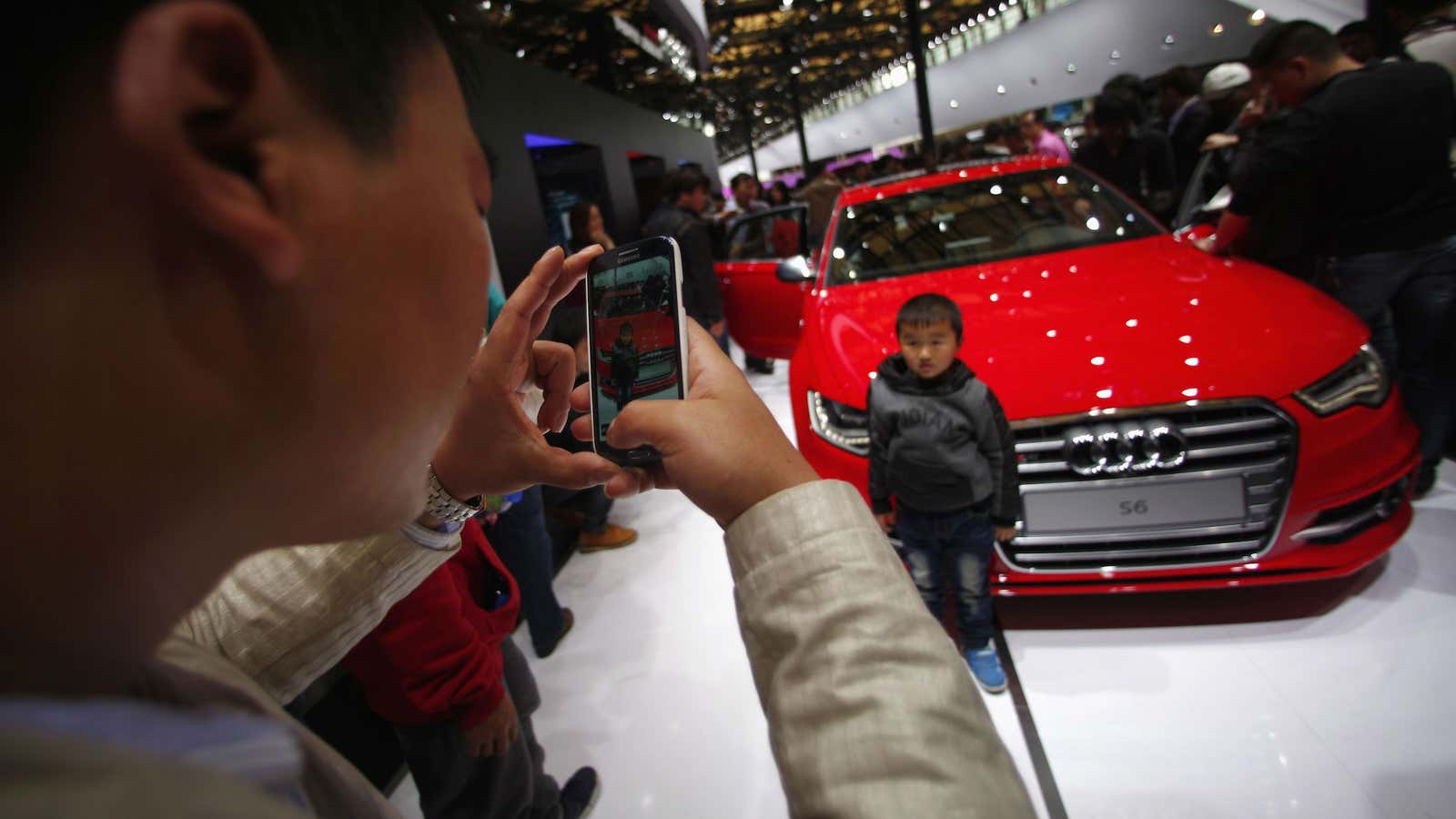China’s anti-trust blitz continues. Car makers Audi, Chrysler, Mercedes Benz, and 10 unnamed Japanese auto parts makers are the latest foreign firms to fall afoul of the country’s regulators, who have launched an aggressive campaign against a slew of foreign-owned companies.
China’s National Development and Reform Commission (NDRC) said today that Audi and Chrysler “have monopolistic practices” and that they would “be punished soon.” Regulators said Daimler’s Mercedes Benz is also under investigation and that an anti-trust probe into a group of Japanese auto parts firms has just concluded. Separately, investigators from NDRC raided four more Microsoft offices and have begun investigating the company’s Chinese partner, Accenture.
China has ramped up enforcement of a six-year old anti-monopoly law, going after foreign firms ranging from chipmaker Qualcomm to pharmaceutical giant GlaxoSmithKline. While domestic companies like high-end liquor producers Maotai and Wuliangye, which were charged with price fixing, have also been caught in the dragnet, foreign companies have drawn most of the scrutiny.
Some observers interpret the probes as a sign that China’s domestic industries have matured to a point where officials feel foreign expertise, and brands, are no longer needed. “From computer to car manufacturing and more advanced industries, the country is internationally competitive on its own terms and no longer hungry for technical knowhow,” Zhiwu Chen, a professor of finance at Yale University, wrote in an editorial in the Financial Times last month.
It is also possible that foreigner anti-trust crackdowns, occurring at the same time as a larger government campaign against corruption, are also designed for public opinion. Chinese consumers’ anger at foreign firms, including Starbucks and Apple, has flared at various points over the last few years. The anti-trust investigations may also result in lower prices for consumers; Daimler announced a major price-cut on replacement parts this week.
Others see the anti-trust measures as a way to shore up domestic brands that have yet to make a name for themselves. China has been trying to promote its own luxury car brands like Red Flag, as well as its own computer operating systems that compete with Windows. One blogger on Weibo wrote, (registration required) “They call it a monopoly when what we produce can’t compete with these brands.”
